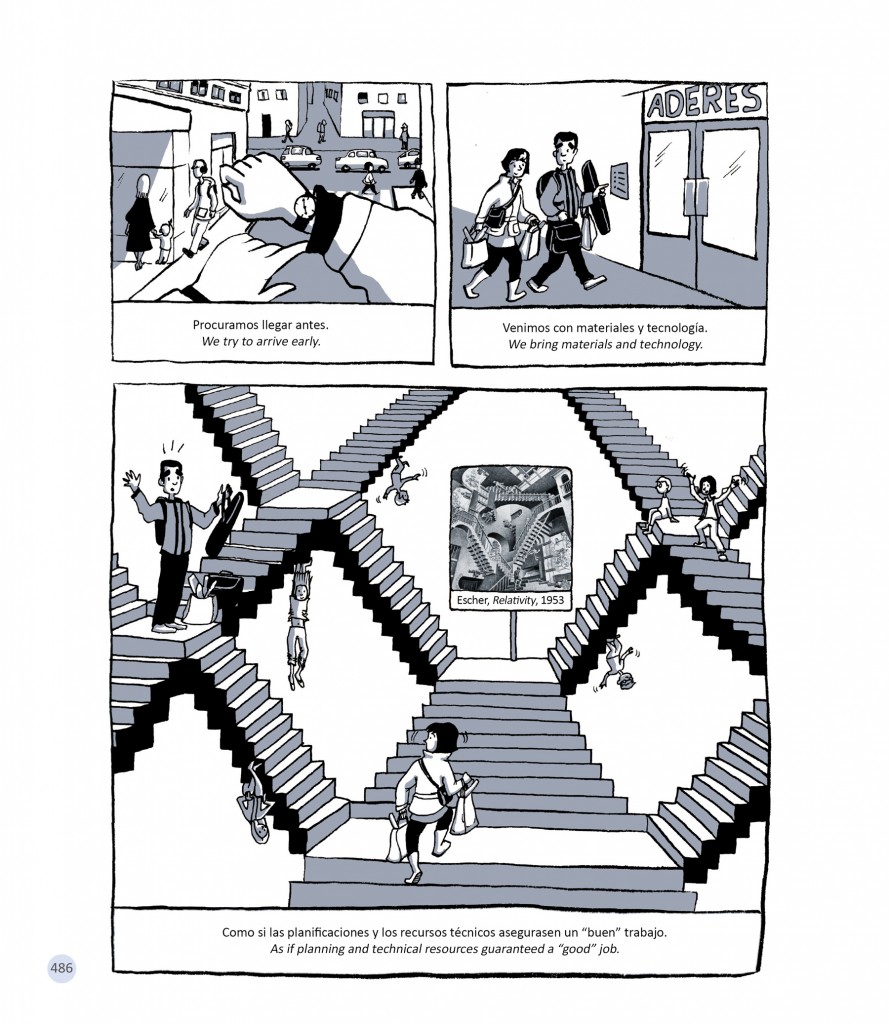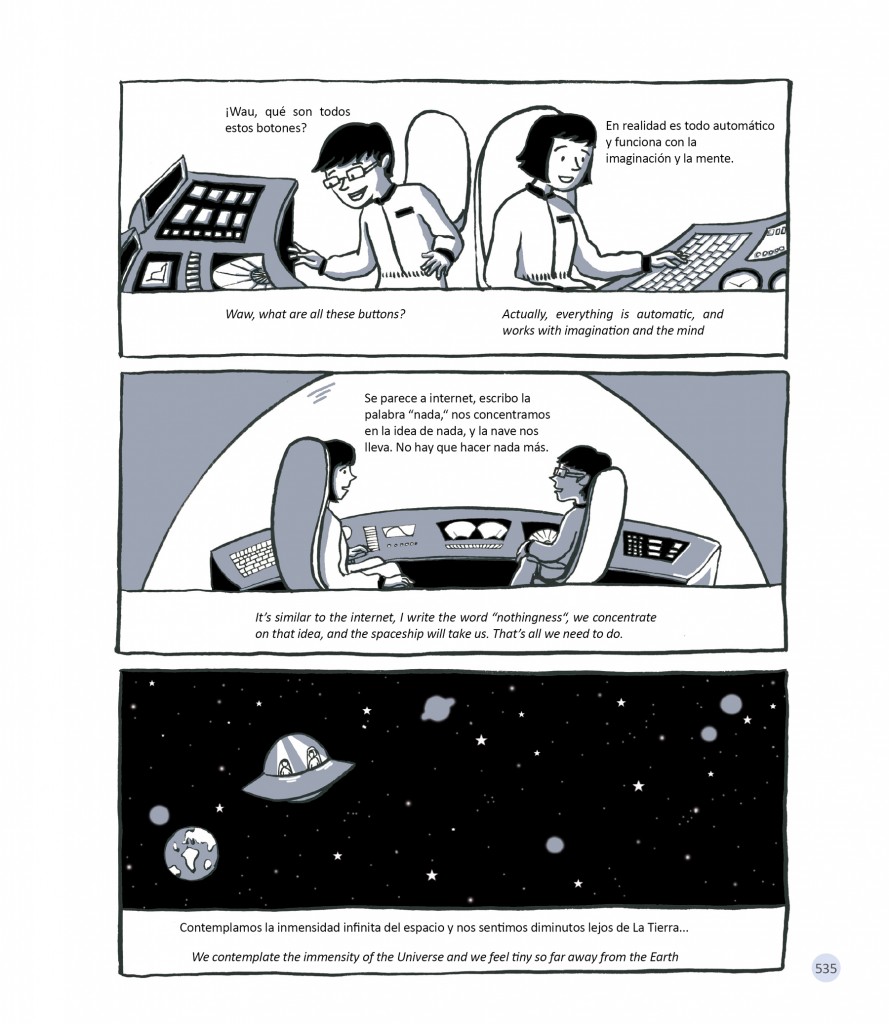A Dissertation by Marta Madrid-Manrique (2014),
The University of Granada, Spain.
This doctoral dissertation is a research educational, artistic and social project that has the aim to explore until what extent can the creation of participatory audiovisual narratives be a means to inclusivity, what impact do these experiences have on the people involved, and what potential does the language of comic books and graphic novels have in qualitative research. Considering a comic based research methodology, this thesis is divided into three volumes, similar to a graphic novel trilogy.
The first volume contains the motivation, the research design, the state of the question, and the theoretical framework. The research design is based on relational (e)pistemologies and the practiced based methodology of a/r/tography. A/r/tography allows me to explore educational problems paying special attention to intersubjective relations in process of inquiry that use artistic languages such as audiovisual production, photography and comics. A/r/tography allows me to explore the contradictory identities of the artist, the researcher, and the teacher, in a polyphonic imaginary dialog developed in graphic stories. The theoretical framework is divided into three sections that relates pairs of fields of knowledge: arts education and visual arts, participatory vide and digital storytelling, and art education and inclusivity. Finally, I conclude the theoretical framework by proposing the concept of “participatory audiovisual narratives” to name the creative, social, and research practice that combines elements from participatory video, and digital narratives, without adjusting strictly to these practices.
The second volume contains the empirical part, the results, and the conclusions. The empirical section conveys the creative processes and generation data strategies of the four experiences. The research is based in four experiences in three different contexts. The first two experiences take place in the ADERES association (Association for the Development of Social Relations), which works with children and young people with social, cognitive, family, and health difficulties. The third experience is developed in the first year of the bilingual group of the teacher training degree for primary education teachers at the University of Granada (Spain). The fourth experience occurs at Eaglearts Summer Camp, in Vancouver Island (Canada), with a group of international students (Taiwan, Canada, Korea, U.S.A). Inclusivity has a different meaning in each experience, from the work in diversity towards respect, acceptation and deconstruction of social labels associated with other differences such as gender, race, culture, and ethnic origin. Finally, the results section presents a critical analysis of the audiovisual productions and an interpretive analysis of the interviews with participants and family members. The written conclusions are a partial answer to the research questions that are complemented with the stories of the third volume.
The third volume contains the graphic conclusions of ten stories grouped in three topics related with the research questions. The first four stories answer the question about inclusivity. Furthermore, the five next stories talk about impacts, and finally, there is a story about epistemic implications. I have decided to finish this research project with the discussion in the form of three dialogs between the artist, researcher, and teacher about inclusivity, the impact of experiences from the creation of participatory audiovisual narratives, and comic language as a narrative method.
Follow this link for a complete look at Marta’s Dissertation


